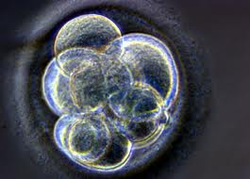Bioethics versus Innovation: the European Court of Justice (ECJ) restricted the patentability of the uses of stem cells
http://thejournalofregulation.com/spip.php?article1415

The European Directive of 6 July 1998 on the legal protection of biotechnology inventions excludes the human embryo of the mechanism of the patent. A patent is filed in Germany on purified brain stem cells. German Federal Patent Court cancels the patent, because it would be on the human being. The one who filed the patent appeals, arguing that a text that refuses the patentability of the embryo is not about stem cells. Asked for a preliminary ruling by the National Court, the European Court of Justice (ECJ) delivers, in a Grand Chamber a judgment on October, 18 2011, asking that the Directive by designating the human embryo has designated the mechanisms of cell division. This extensive conception leaves a possible place for the stem cells. They can therefore be also excluded from patentability.
© thejournalofregulation
In the case, the European Court of Justice (ECJ) states that the patentability of cells-strain is a very sensitive societal issue. The European Court of Justice (ECJ) also states that it refuses to appreciate the issue from a medical or ethical perspective (we understand the first abstention, but less the second one. Indeed, is that the judge is not subjected to an ethical duty in the interpretation of the texts, especially those so-called "bioethics"?).
The Court adopts yet an extensive interpretation of the embryo quite simply, because one cannot say when, from the moment that there is cell division; we leave the stage of the multiplication of cells to move to that of the embryo. From the moment it’s the absence of solid criterion of distinction between the two which requires to be considered that the protection of the embryo (which prohibits its patentability) justifies the protection of propagated human cells (similarly excluded from the patentability).
The European Court of Justice (ECJ) is, as in other socially sensitive issues, implementing the principle of subsidiarity: they are nation States which must choose (here in this case, the German judge) if they will prohibit patents on stem cells, based on the European text prohibiting patents on human embryos or on ad hoc text or a general principle. But this decision of 18 October 2012 was criticised by those who would wish that European judges reason inversely. It would indeed have been enough to say that the Directive is that the embryo and not the cell, that prohibitions are subject to a restrictive interpretation and can be applied to a case not expressly covered by the text, that the research is free, that trade is free.
The criticism relies primarily on the fact that such judgment breaks innovation. Indeed, within a period of time, isolated and purified neural cells intended to serve and to be used against Parkinson’s disease. Without a return on investment, that the patent furthers away, the laboratories will turn away. We can see here that judges have difficulty to hold the scale of justice: between the innovations to encourage public health and the concern of human being whose integrity is threatened by science.

votre commentaire